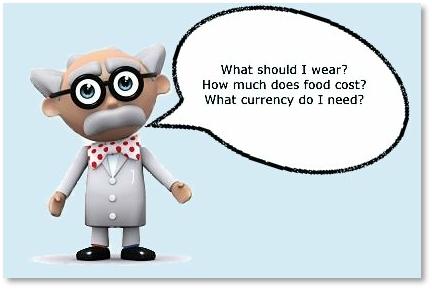







Experience the Real Sri Lanka







Frequently asked questions
Do I need a Visa
Yes, you WILL need a visa to enter Sri Lanka (unless you are a citizen of The Republic of Singapore or The Republic of Maldives). You can get a short stay visa through an online visa application process, the Electronic Travel Authority (ETA ). You can no longer get a visa on arrival.
visa application process, the Electronic Travel Authority (ETA ). You can no longer get a visa on arrival.
If you experience any difficulty with the ETA System, or if you are travelling for paid or unpaid work, you should get a visa from the Sri Lankan High Commission before you travel.
What is the average price of a meal?
Meal prices vary a lot depending on whether you want to eat in top class restaurants or ordinary ones but will probably seem very good value compared to the UK. A lunch with a drink for 2 will often be as little £7-£8. Evening meals are not much more. Wherever we recommend, you can be sure of good food and good prices.
What is the local drink?
Tea is the national drink and is probably the best in the world (but we would say that !). Toddy, which is made from palm tree sap, is a popular local drink; this can be fermented to make the alcohol called Arrack which many of our tourist friends like. Tastes a little like brandy and goes down well with Coke.
When it comes to buying bottled water (particularly from shops at the roadside) be careful to make sure that the seal on the bottle is not broken.
Can I buy wine?
Guests do not normally rate local wine very highly but it can be bought. More expensive international wines can also be purchased.
Where are the best beaches?
The best beaches can be found in the South and South West of the Island @ Bentota & Tangalle.
Electric items and travel plugs needed?
The electricity supply is 220-240 Volts (here is more information). You can buy adapter plugs reasonably priced at the local shops and some hotels. We will be happy to help you.
How much do I tip?
For Taxi drivers and restaurant staff 10 per cent is common. Tip Hotel porters about 100 Sri Lankan Rupees per bag (about 50p in UK money or about 1/2 a Euro).
What should I wear?
All-year-round wear should be light cotton, drip-dry dresses and light-weight suits, Comfortable shoes or sandals, a wide-brimmed beach hat and sun glasses. However, in the hill country temperatures can drop to as low as 10’C - so take some jumpers with you.
When going into Temples and other religious areas legs and shoulders need to be covered. This can be accommodated by wearing a sarong over shorts, or wearing long trousers (or for ladies a long skirt). Some restaurants at high star hotels request you are suitably attired which would mean no shorts in the evening.
What laundry facilities are there?
There are some laundry’s in the towns and cities where you would need to leave your clothes and collect later.
What about the dreaded Mosquitoes?
Everyone has their own answer to this little pest. General advice is to cover up as much as possible at night, use mosquito coils outdoors (cheap to buy in Sri lanka...smell awful and use netting around your bed. Many people spray themselves with a strong solution of DEET (supposed to be quite effective).
Although hard to believe, some (including soldiers and some of our customers) say that a product called Avon Skin-so-Soft dry oil is vey effective. But don't take our word for it or blame us if you still get bitten. At least you will have nice soft skin!
Do I need to take a mosquito net?
There is no real requirement to take a mosquito net because the hotels provide them automatically. They can however be purchased locally for a very reasonable price.
What is the currency?
Sri Lanka’s currency is the Sri Lankan Rupee (abbreviated SLR or LKR) and it is NOT available outside of Sri Lanka. It is best to take British Pounds (GBP, £) in cash and/or traveller’s cheques and use ATMs.(It is recommended that you check with your bank before travelling about access to ATMs in Sril Lanka). One rupee is divided into 100 cents. There are 1-, 2-, 5-, 10-, 25- and 50-cent coins as well as 1-, 2- and 5 rupee coins available. There are 2, 5, 10, 20, 50, 100, 500 and 1000 rupee bank notes available.
What jabs do I need?
You can find some helpful information at the Tropical Medicine Bureau
| Frequent Questions |
| Weather/Climate |
| Culture/Hill/Beach |
| Explore Sri Lanka |
| Classic Sri Lanka |
| Cultural Triangle |
| General Photos |
| Customer Photos |
| Reviews 2014 |
| Reviews 2013 |
| Reviews 2012 |
| Reviews 2011 |
| Reviews 2006-2010 |